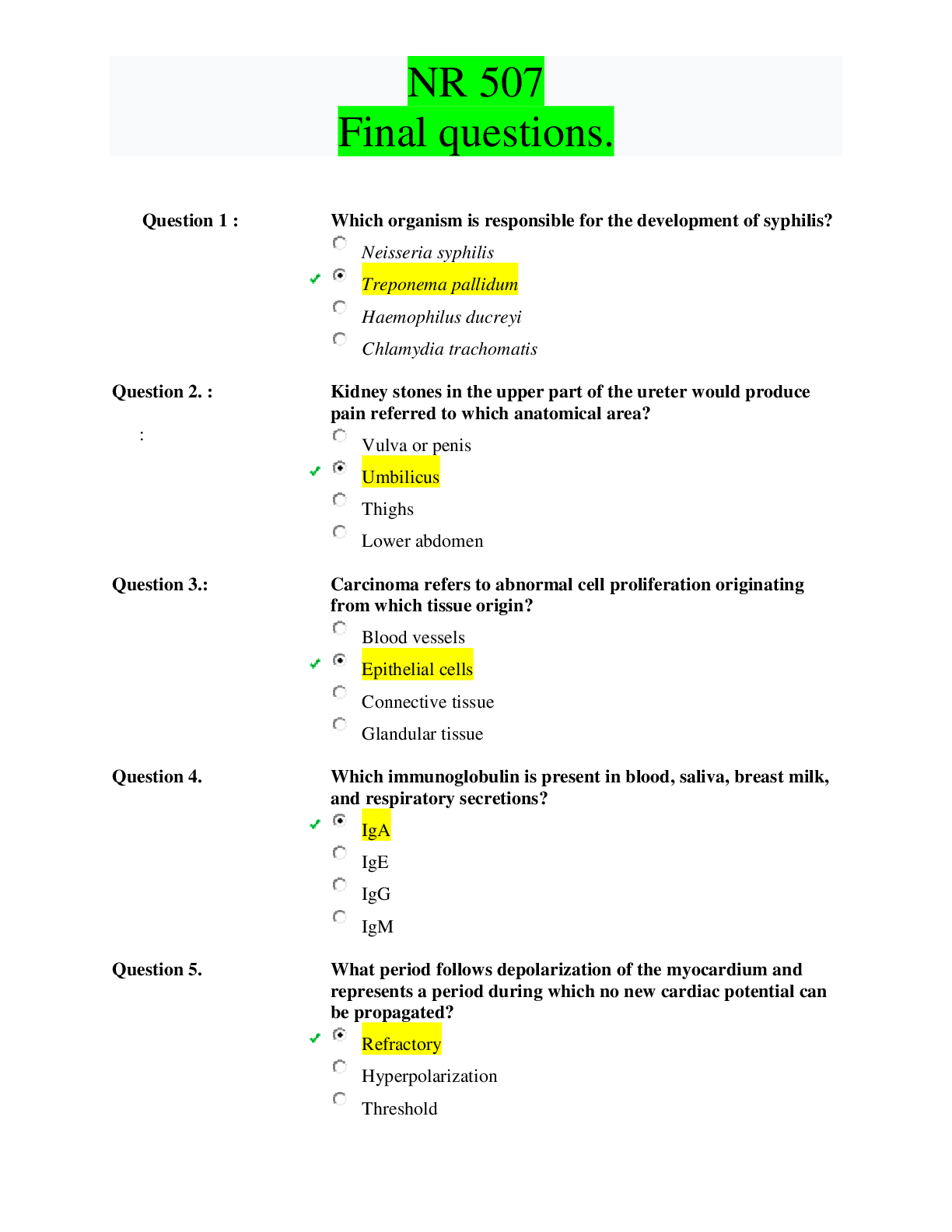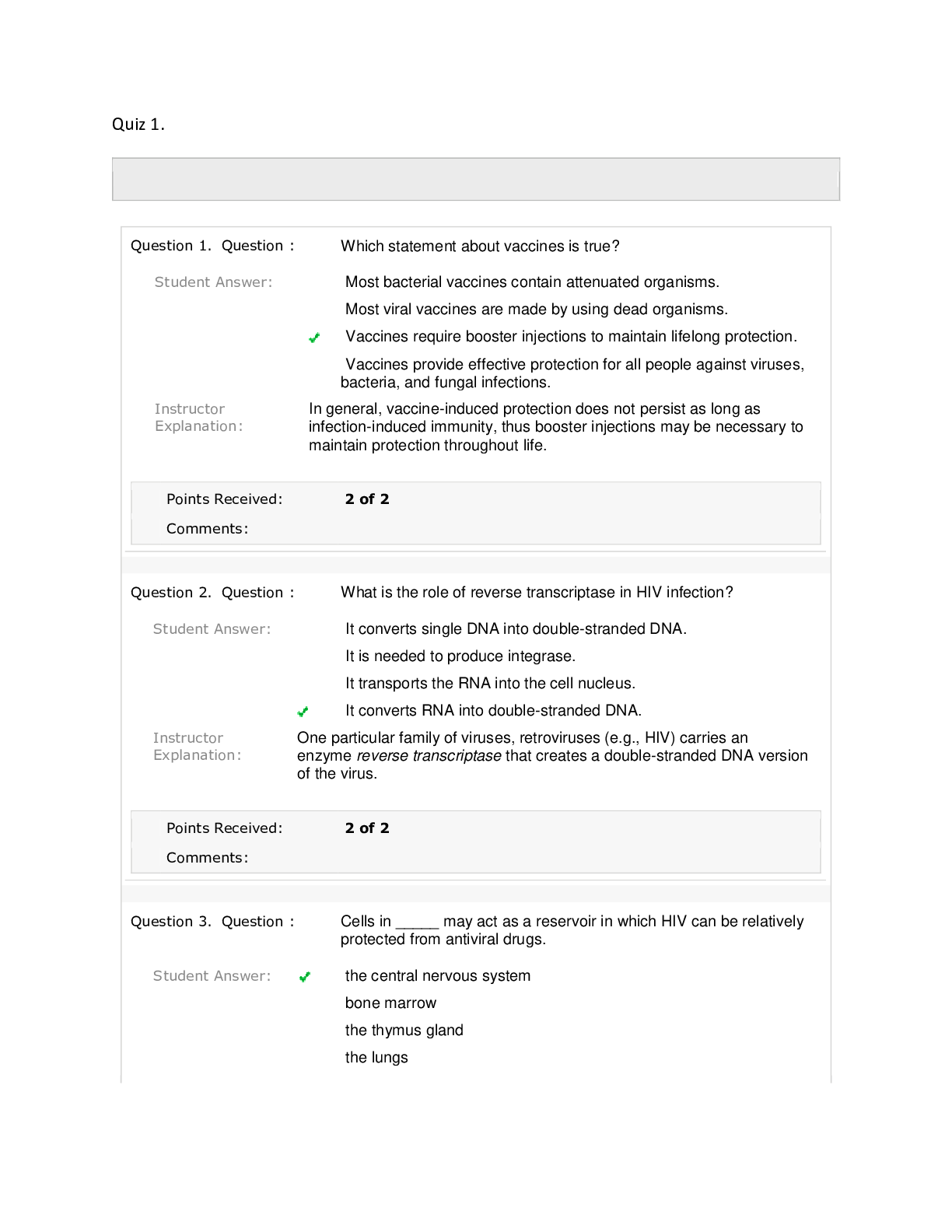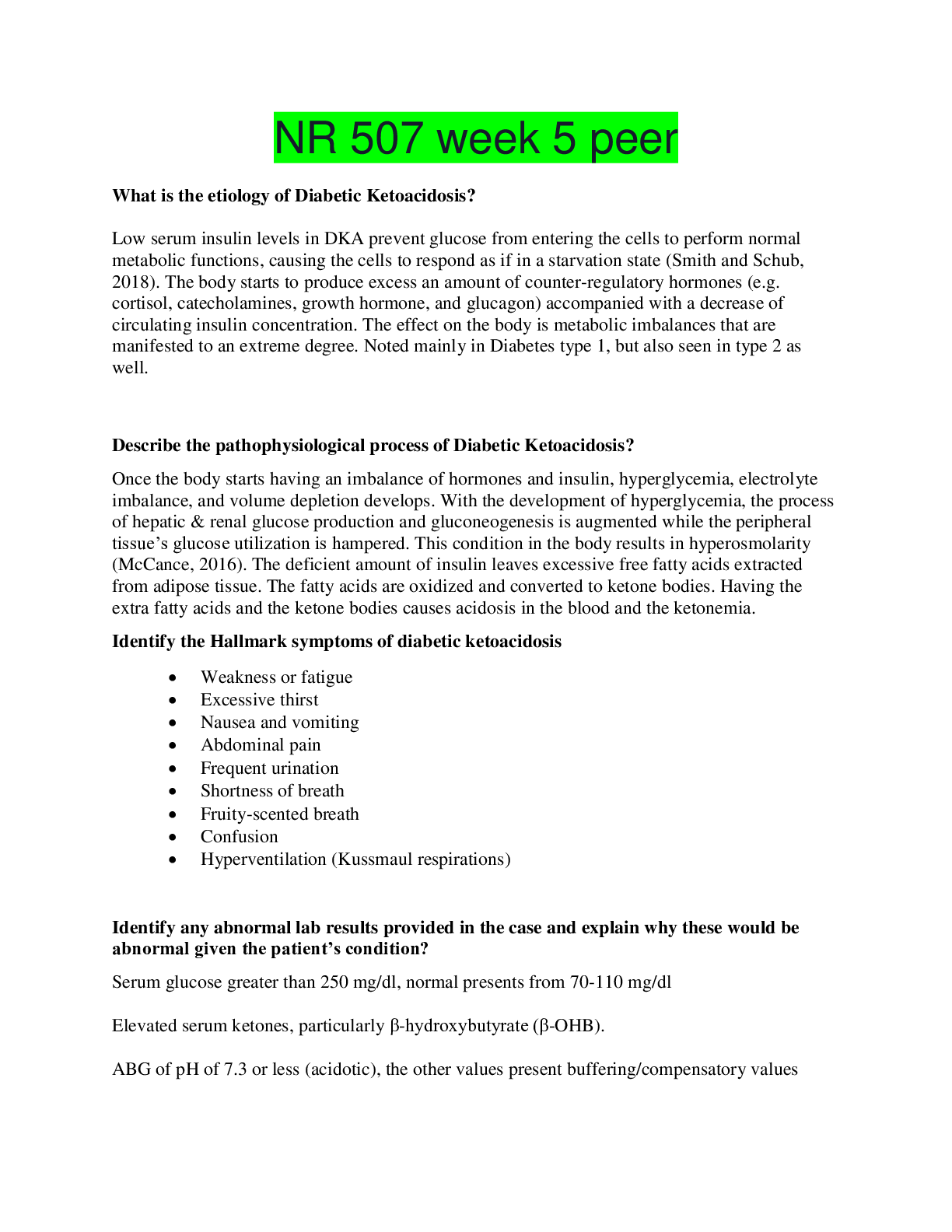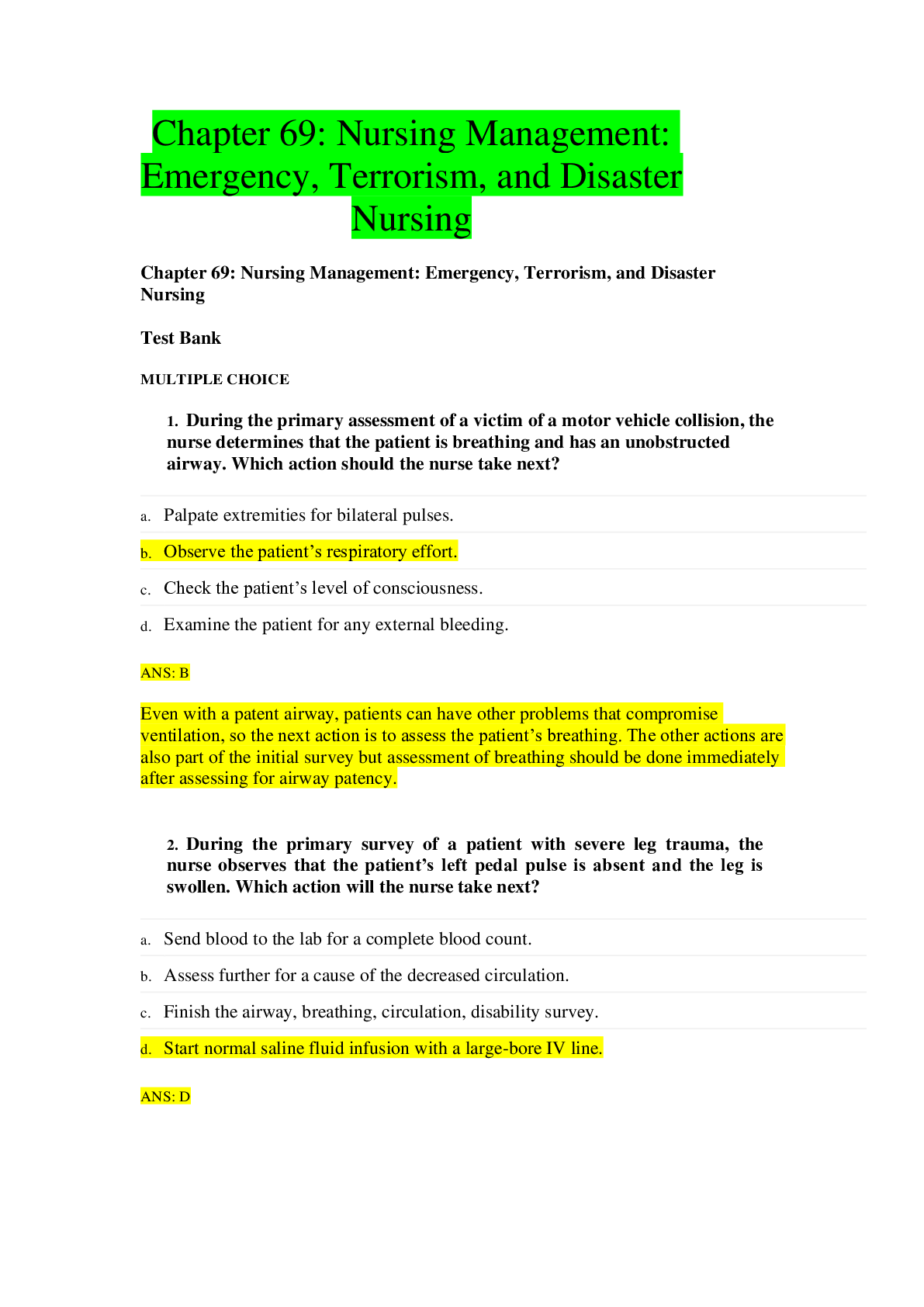Political Science > QUESTIONS & ANSWERS > Chamberlain College Of Nursing > POLITICAL SCIENCE > POLI330N FINAL EXAM (GRADED A) (All)
Chamberlain College Of Nursing > POLITICAL SCIENCE > POLI330N FINAL EXAM (GRADED A)
Document Content and Description Below
Political Science Final Question 1.1. (TCO 1) Historians and political scientists are different because historians _____ and political scientists _____. Question 2.2. (TCO 1) Which are both... true for most politicians? (Points : 2) Question 3.3. (TCO 1) When people base their views on beliefs that may not be based in reality, they are behaving _____. (Points : 2) Question 4.4. (TCO 1) Which of the following best exemplifies sovereignty? (Points : 2) Question 5.5. (TCO 1) The notion that we acknowledge the rightful roles of our leaders or our laws is known as _____. (Points : 2) Question 6.6. (TCO 1) Relating concepts in a way that connects them in an empirical manner is the basis of _____ building. (Points : 2) Question 7.7. (TCO 1) The term for measuring with numbers is _____. (Points : 2) Question 8.8. (TCO 4) The English common law stressed the rights of free and equal men and was developed on the basis of precedent set by earlier judges, known today as _____. (Points : 2) Question 9.9. (TCO 4) Under which of the following circumstances might a case be pursued as both a criminal and a civil case? (Points : 2) Question 10.10. (TCO 4) Describe the significance of Marbury v. Madison. (Points : 2) Question 11.11. (TCO 4) Who nominates and approves federal judges in the U.S. court system? (Points : 2) Question 12.12. (TCO 4) When was judicial review granted to the Supreme Court within the United States? (Points : 2) Question 13.13. (TCO 4) Examine the ideal role of American judges. (Points : 2) Question 14.14. (TCO 4) The Supreme Court’s decision in _____ (1954) triggered a revolution in American race relations, an area Congress had been unwilling to touch. (Points : 2) Question 15.15. (TCO 5) Why do the responsibilities of legislative and executive powers often overlap? (Points : 2) Question 16.16. (TCO 5) How often does the cabinet change in a parliamentary system? (Points : 2) Question 17.17. (TCO 5) Voters receive the most direct representation in which system? (Points : 2) Question 18.18. (TCO 5) Each division of government in a parliamentary system is headed by a _____. (Points : 2) Question 1.1. (TCO 5) Distinguish the process that a parliamentary system uses to oust a chief executive from the one available in the U.S. presidential system. (Points : 2) Question 2.2. (TCO 5) In the case of both parliamentary and presidential systems, examine the reason democracies will not vanish, even though the executive seems to be receiving more and more power. (Points : 2) Question 3.3. (TCO 5) What is the role of cabinet members? (Points : 2) Question 4.4. (TCO 7) Describe how today’s conservatives use the term political economy. (Points : 2) Question 5.5. (TCO 7) Describe British economist John Maynard Keynes’ proposal to cure economic depressions. (Points : 2) Question 6.6. (TCO 7) What event is largely considered responsible for deterring Johnson’s War on Poverty? (Points : 2) Question 7.7. (TCO 7) Differentiate between the rising costs of Medicare and Medicaid. (Points : 2) Question 8.8. (TCO 7) According to political scientist Ira Sharkansky, “All modern states are welfare states, and all welfare states are _____.” (Points : 2) Question 9.9. (TCO 7) Compare American and Canadian views on the size of government. (Points : 2) Question 10.10. (TCO 7) Many conservative economists argue that some banks are _____, because they would topple the rest of the economy with them. (Points : 2) Question 11.11. (TCO 9) Rarely the work of small bands and conspirators alone, _____ are usually the result of system collapse, which permits small but well-organized groups (often military) to take over. (Points : 2) Question 12.12. (TCO 9) Describe what can often happen in a changing society when, during times of prosperity, some people get rich faster than others. (Points : 2) Question 13.13. (TCO 9) How is high unemployment relevant to civil conflict? (Points : 2) Question 14.14. (TCO 9) Some states engage in _____, despite officially denouncing terrorism. (Points : 2) Question 15.15. (TCO 9) Which of the following options best describes countries before and after revolutions? (Points : 2) Question 16.16. (TCO 9) The United States hesitated supporting the _____ revolutions because it feared they would fall under extremist influences. (Points : 2) Question 17.17. (TCO 9) Hannah Arendt pointed out that rage is the fuel of revolution, but what is now the greatest cause of rage? (Points : 2) [Show More]
Last updated: 1 year ago
Preview 1 out of 9 pages
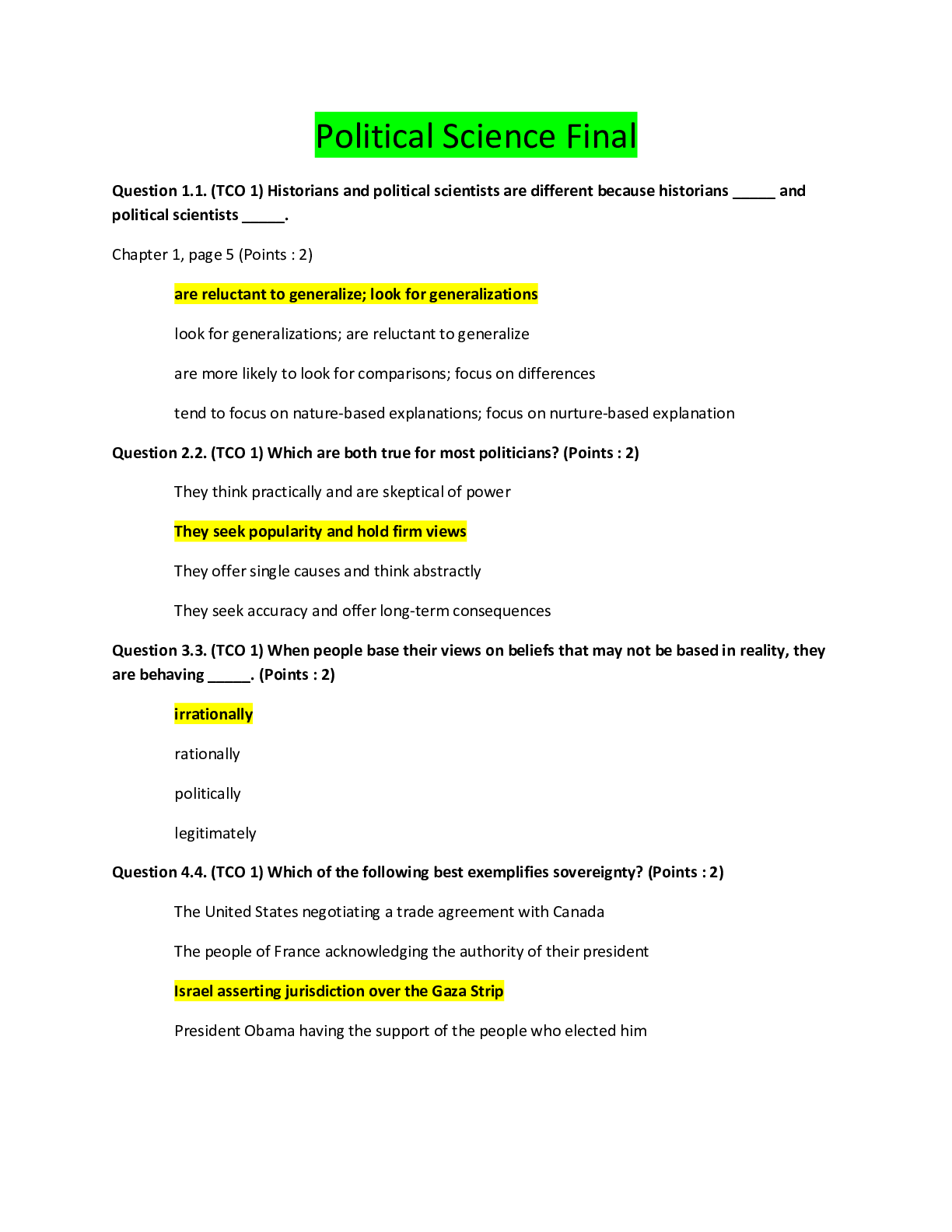
Reviews( 0 )
Document information
Connected school, study & course
About the document
Uploaded On
Apr 26, 2020
Number of pages
9
Written in
Additional information
This document has been written for:
Uploaded
Apr 26, 2020
Downloads
0
Views
107

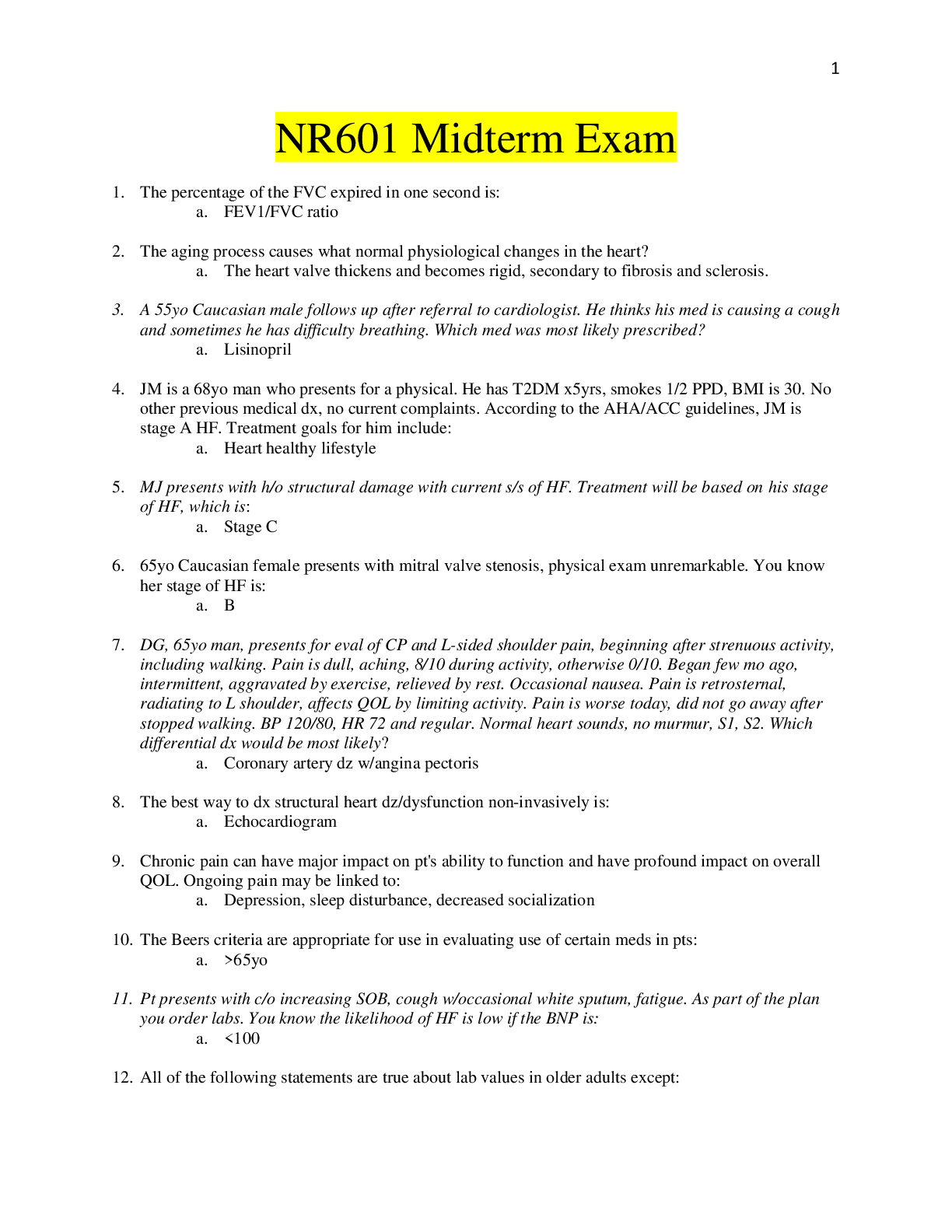
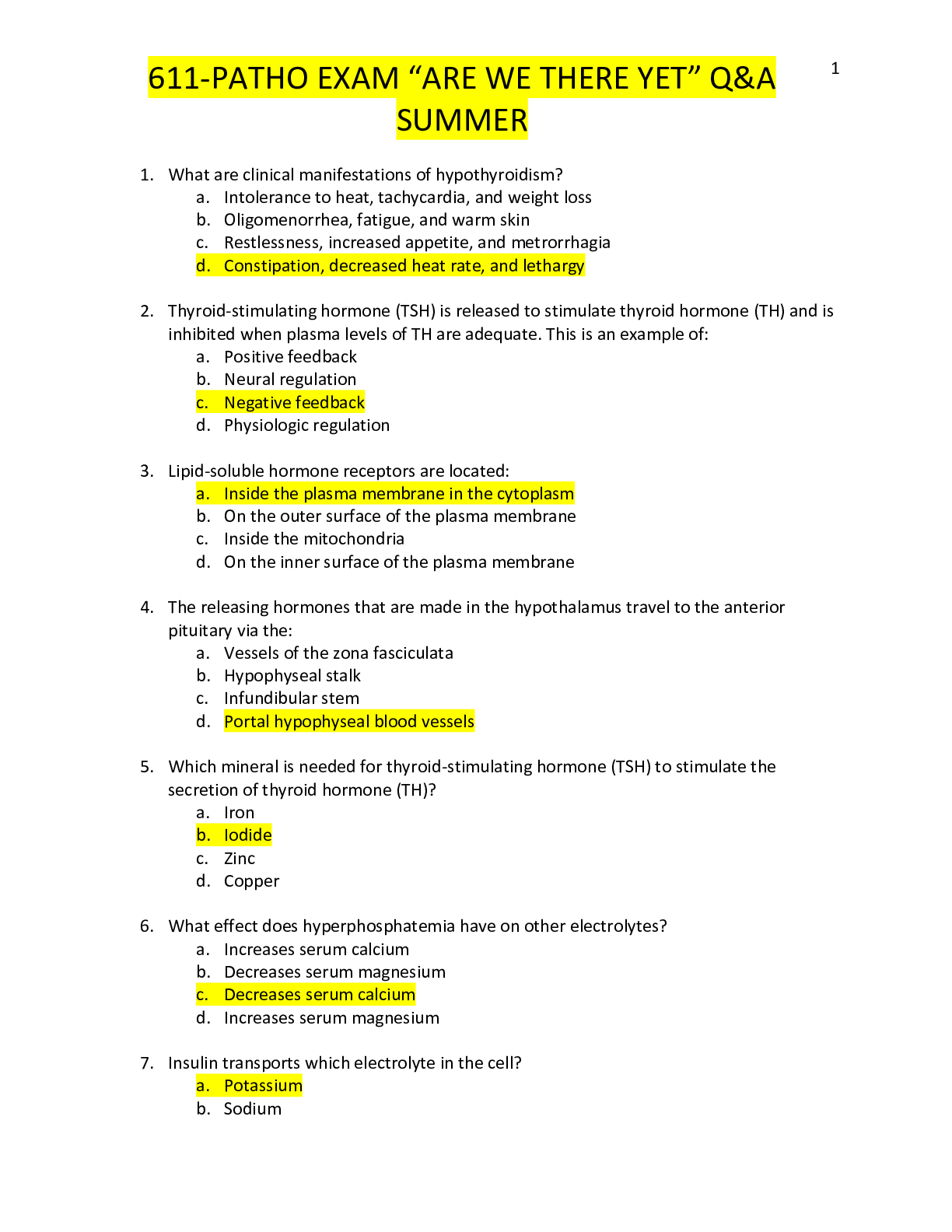
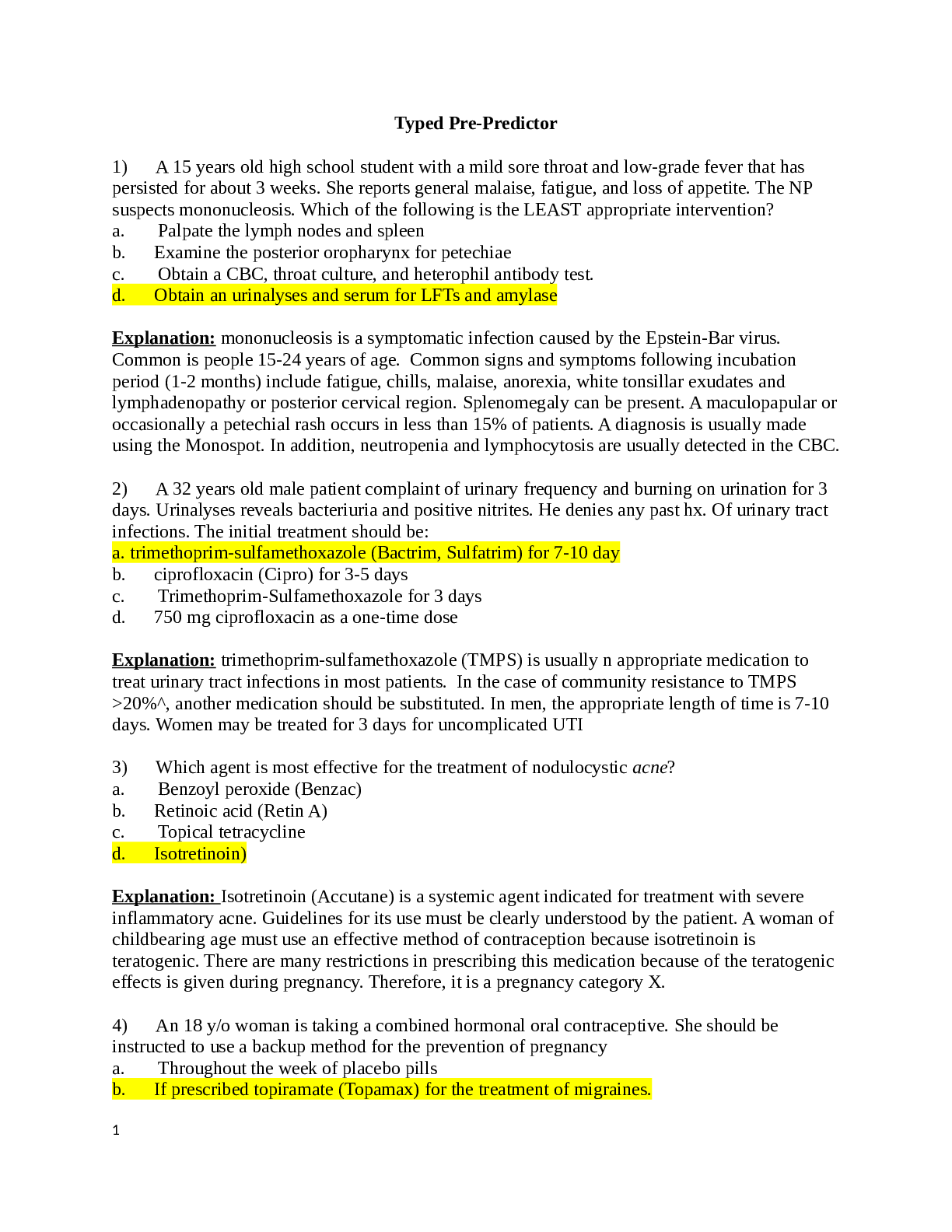
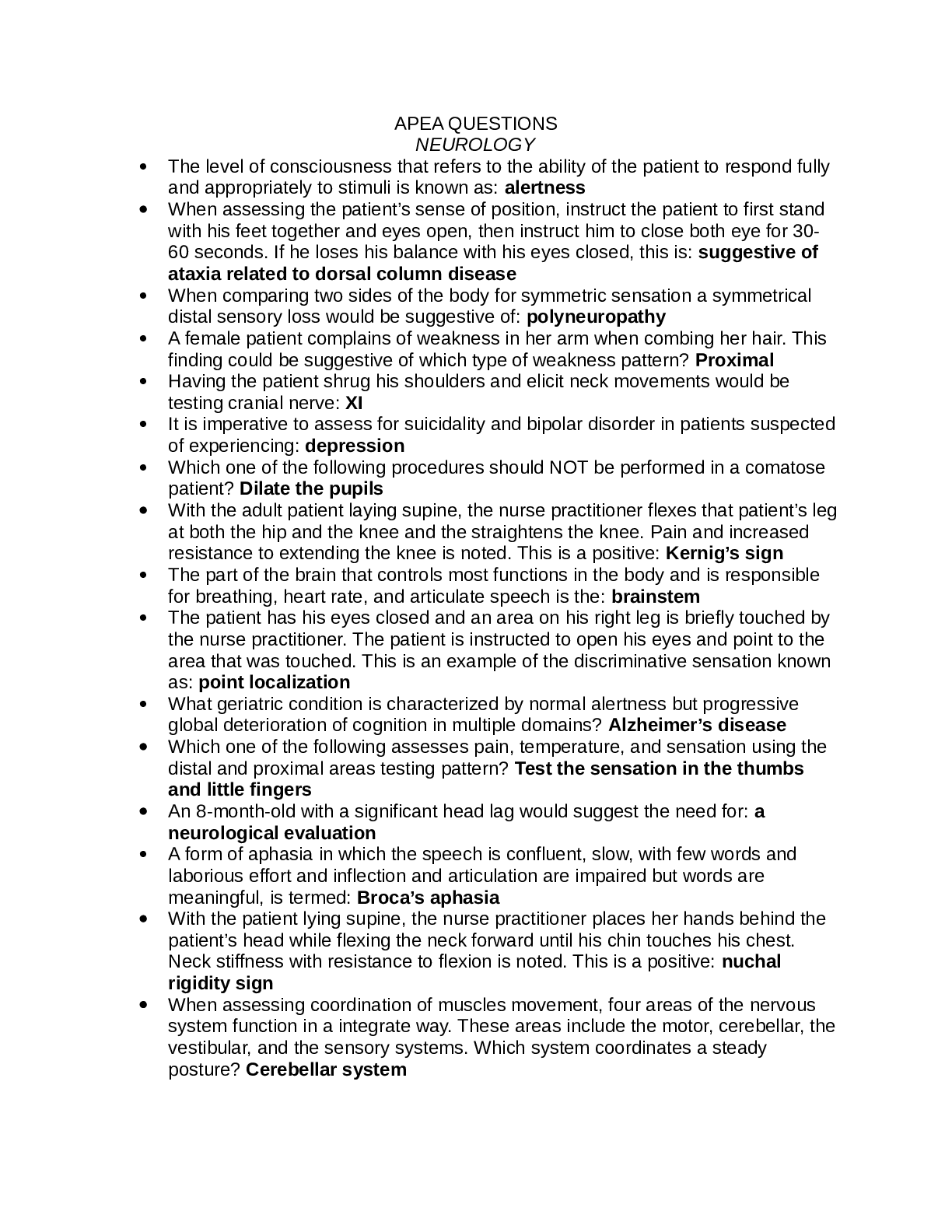
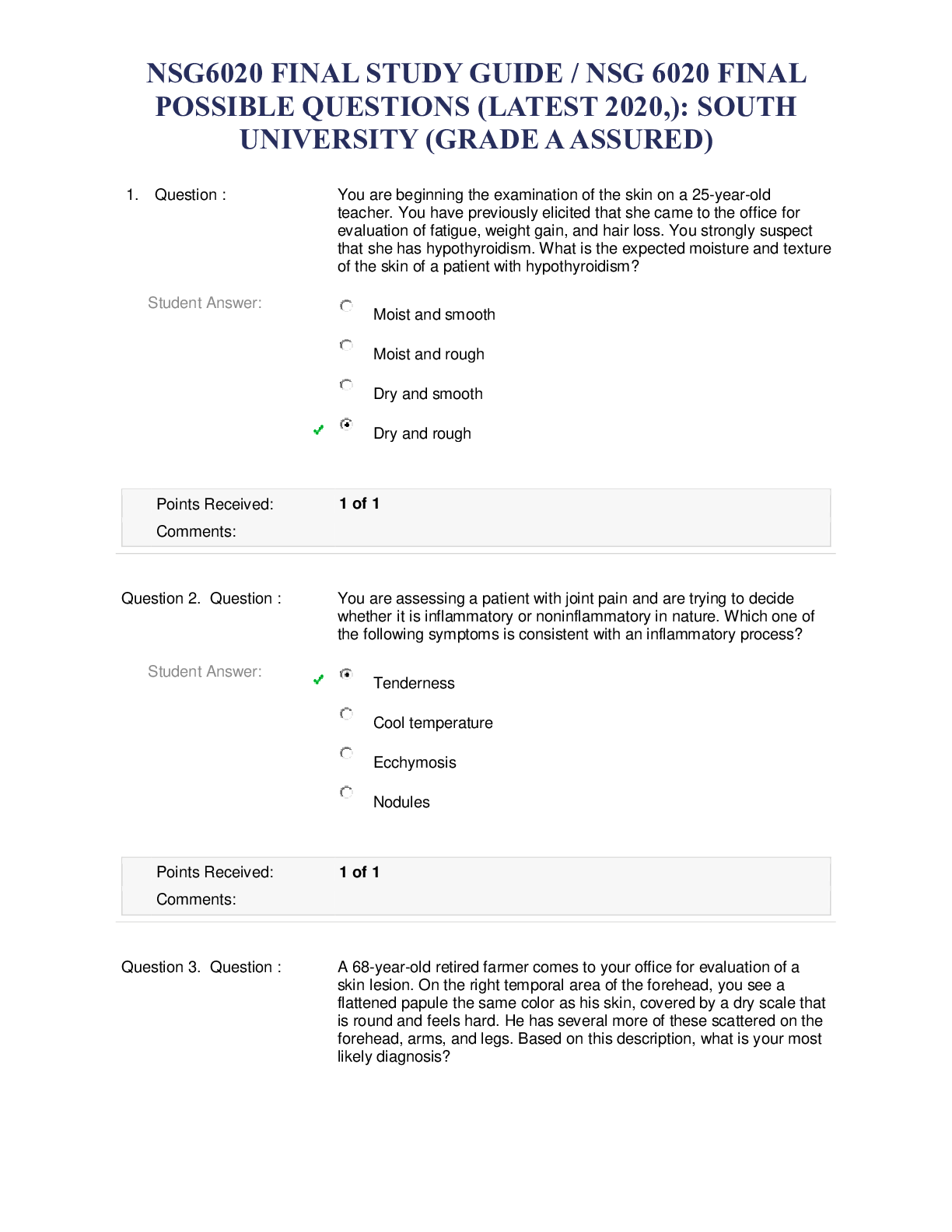
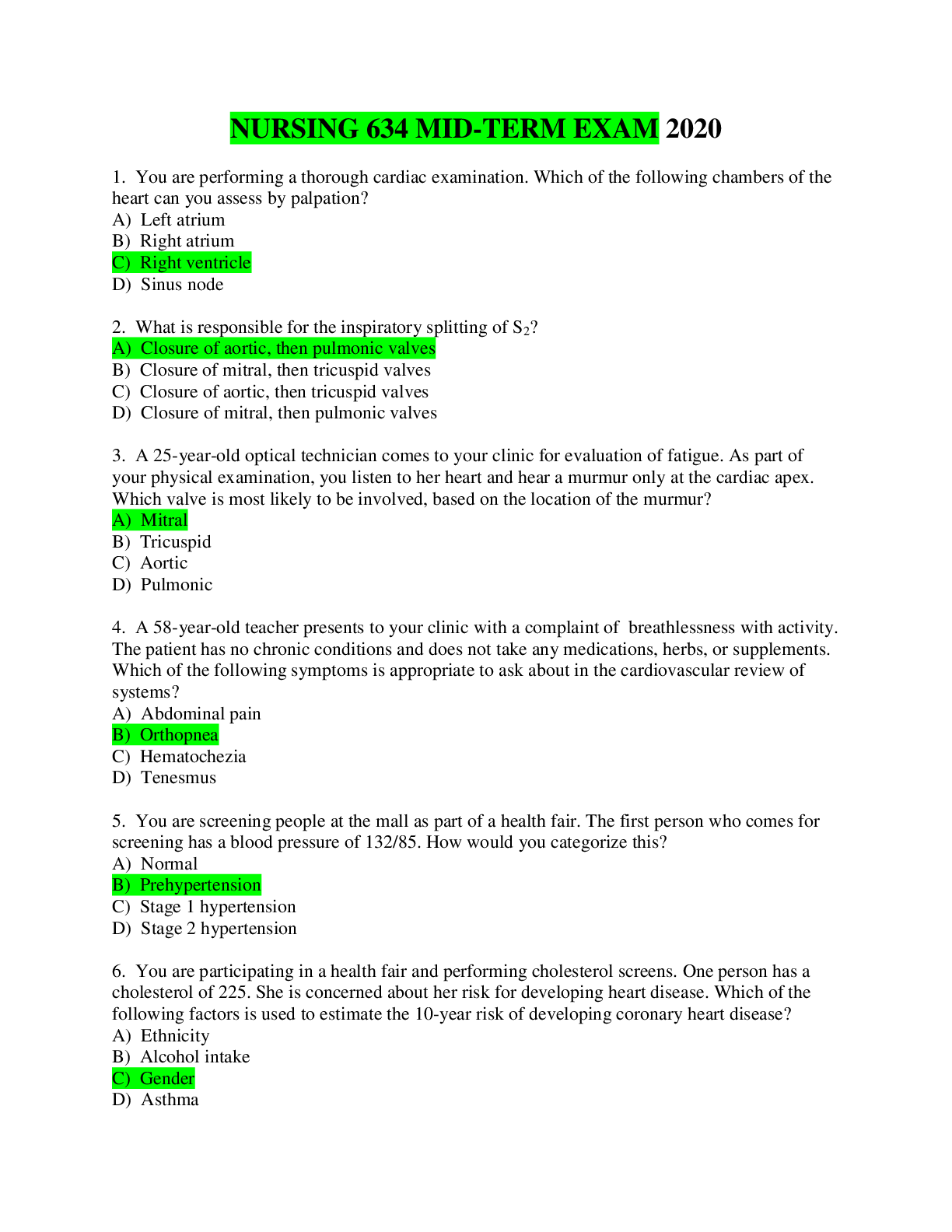
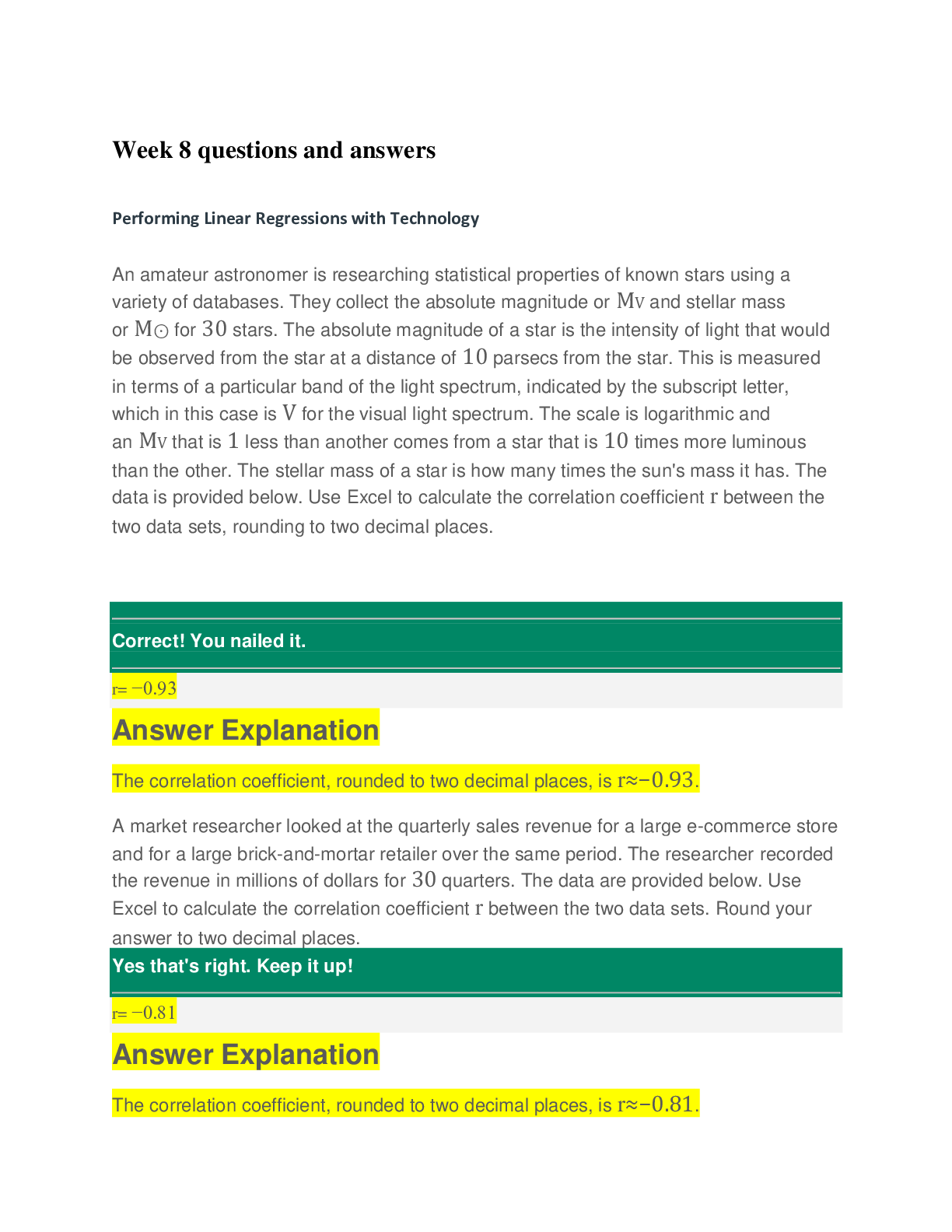
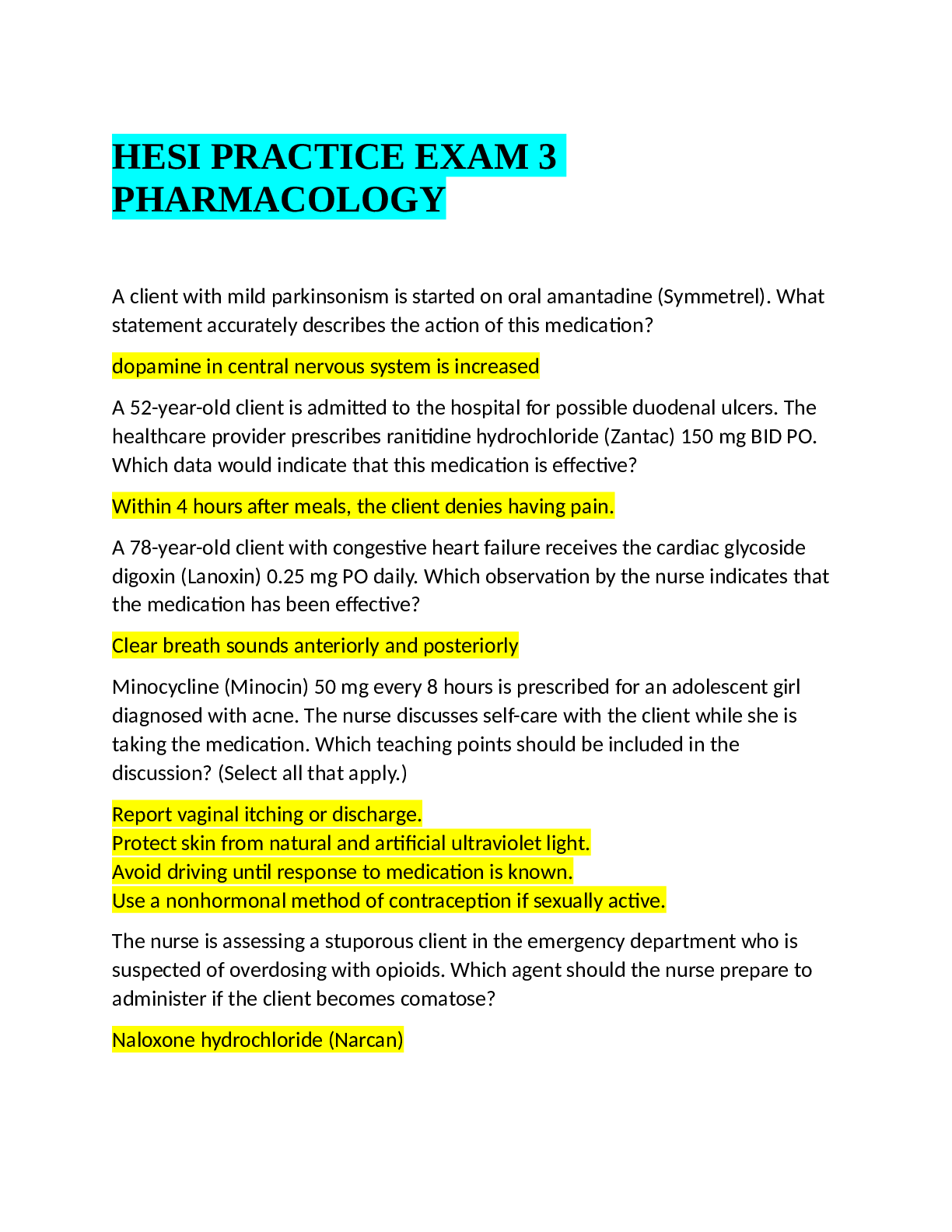


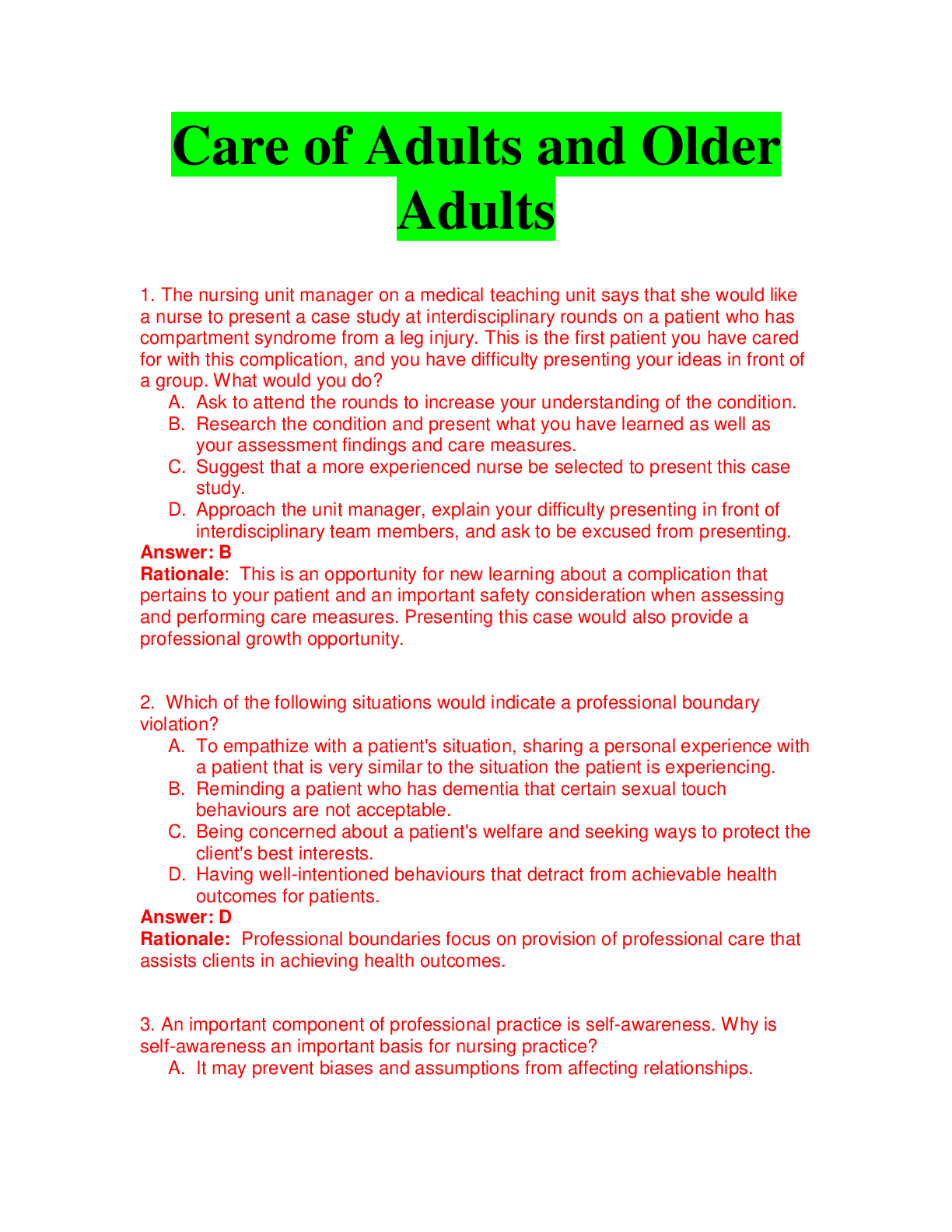
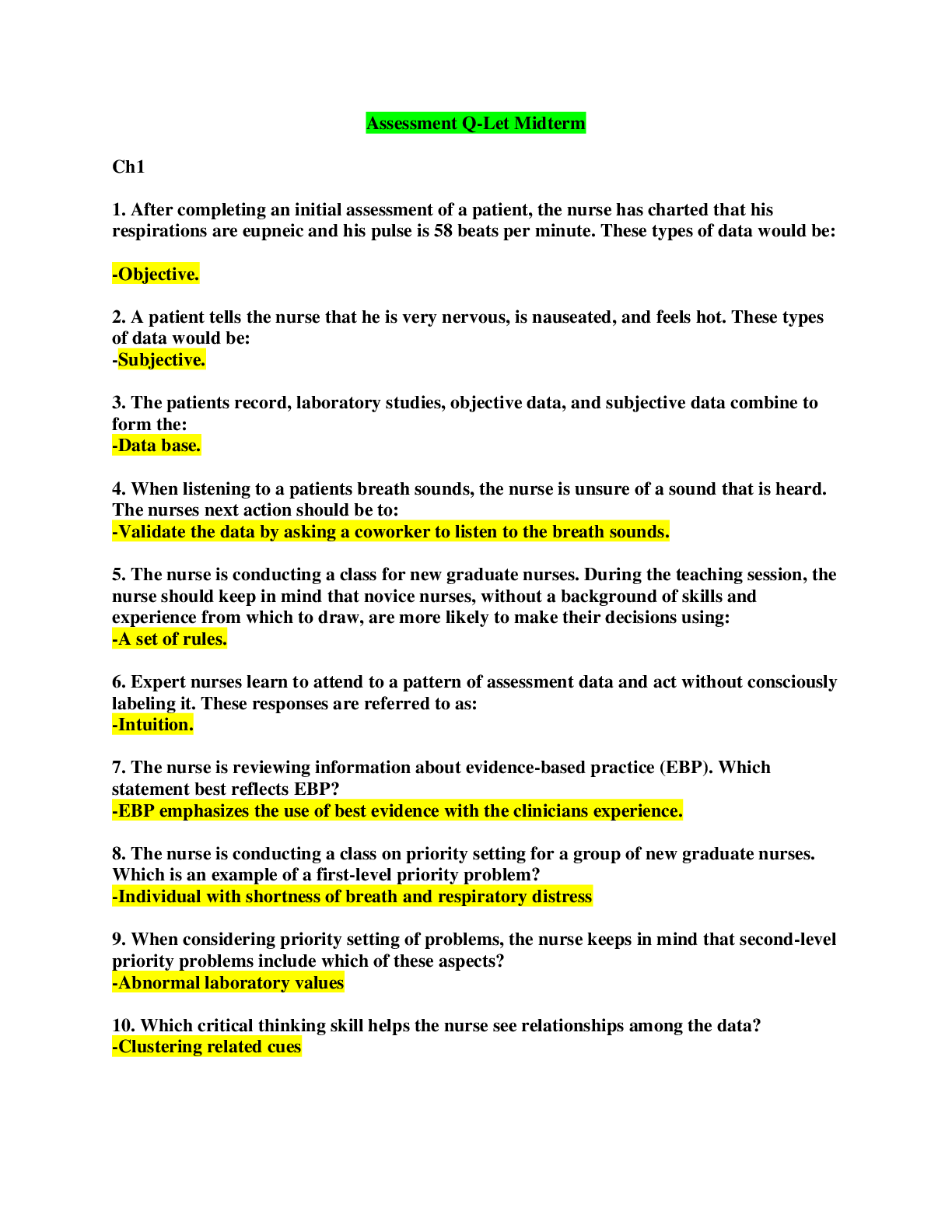
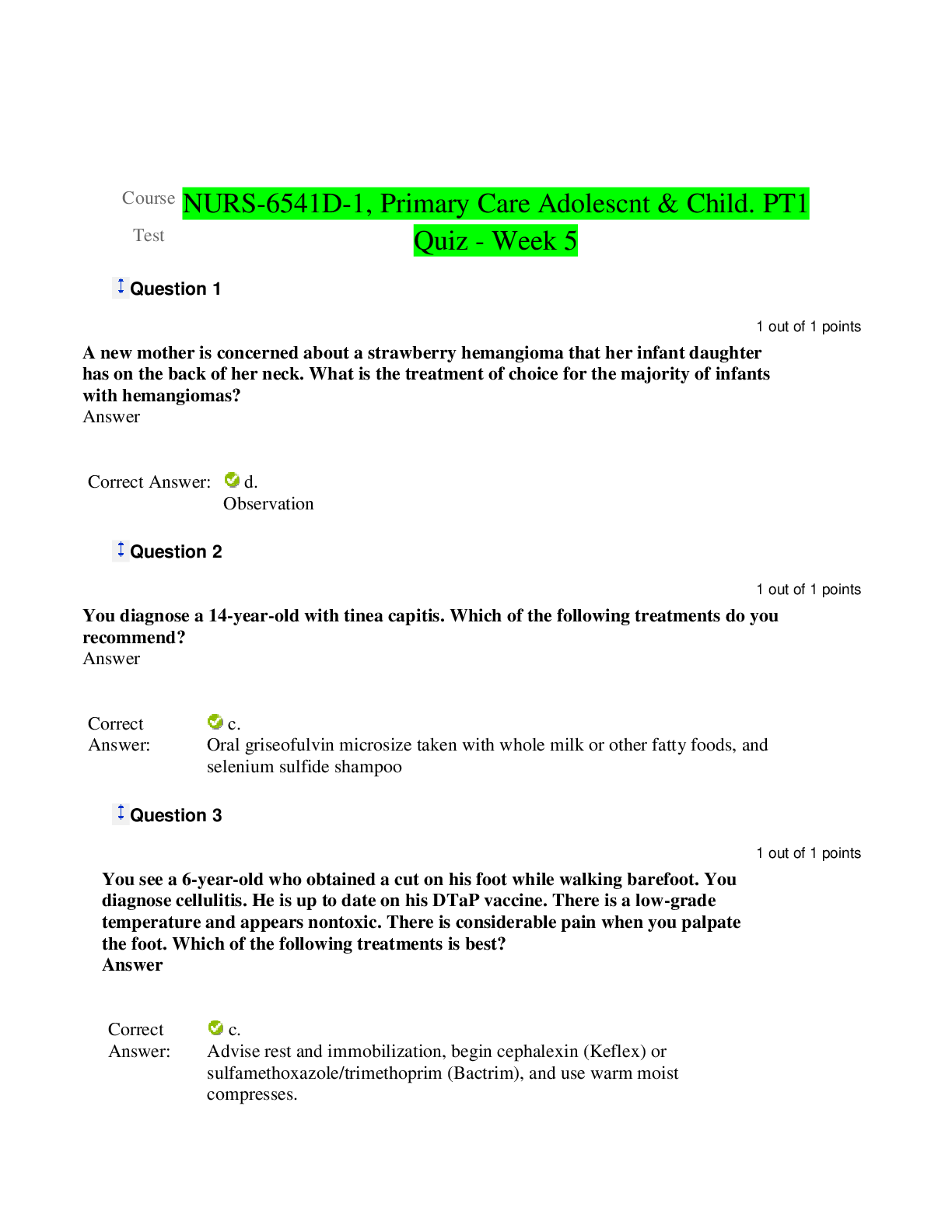
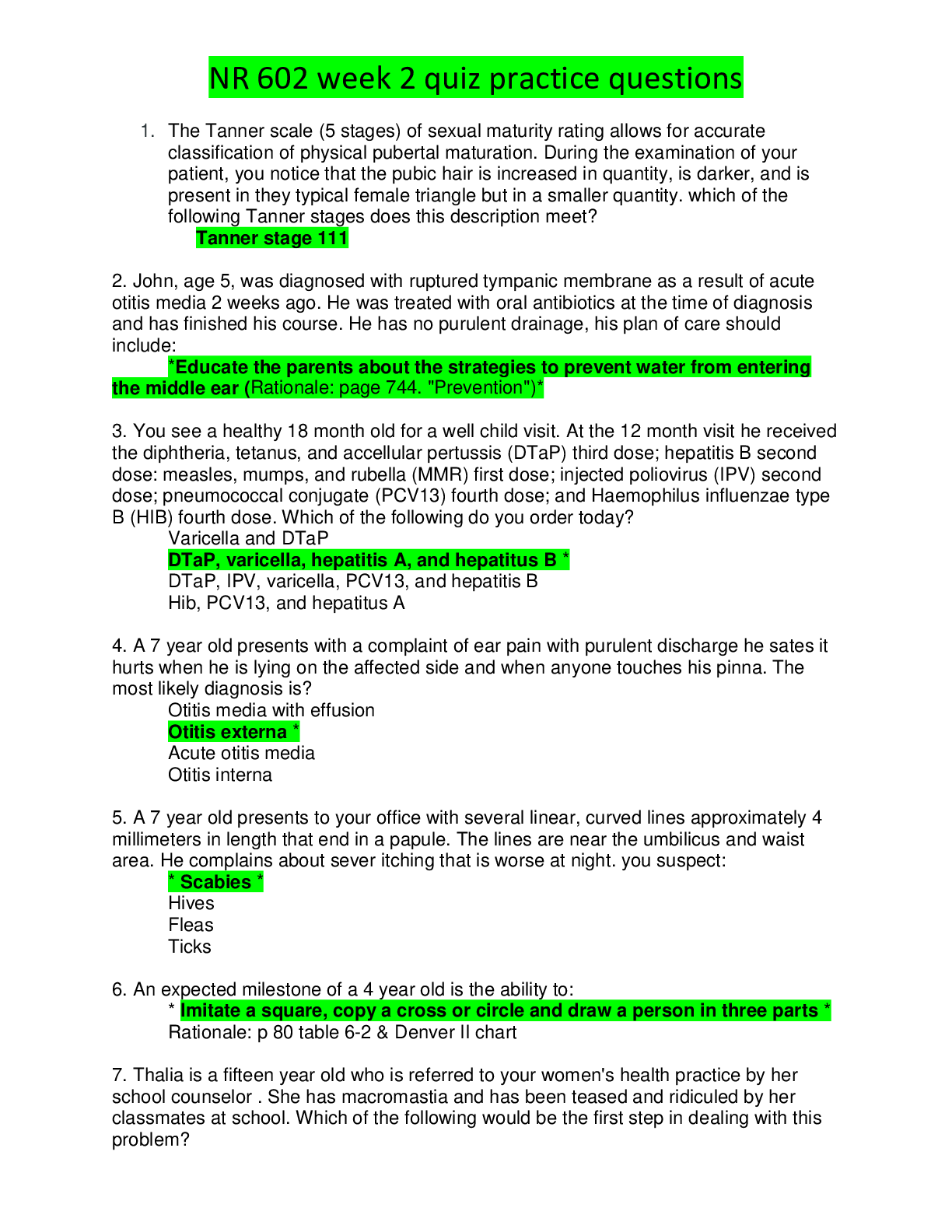
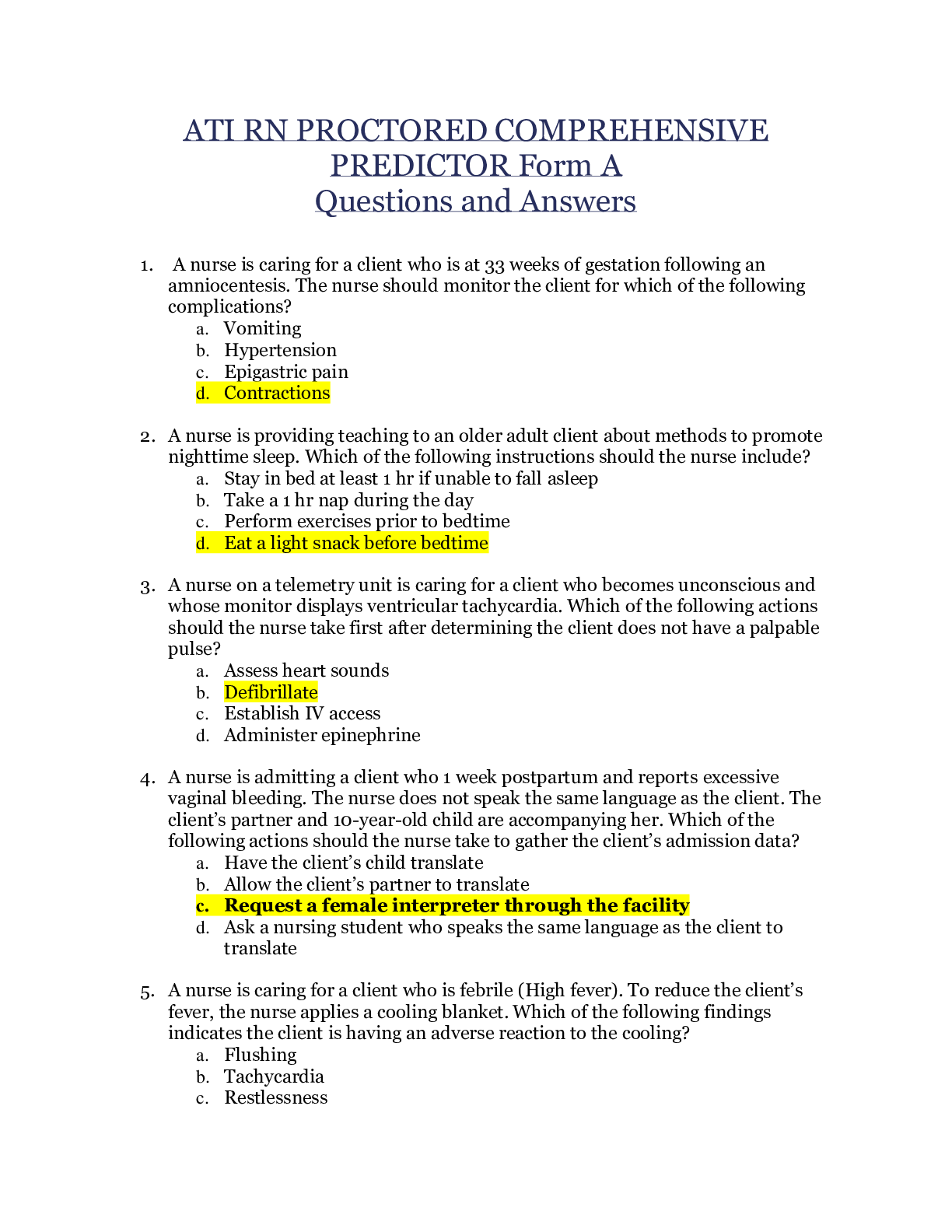
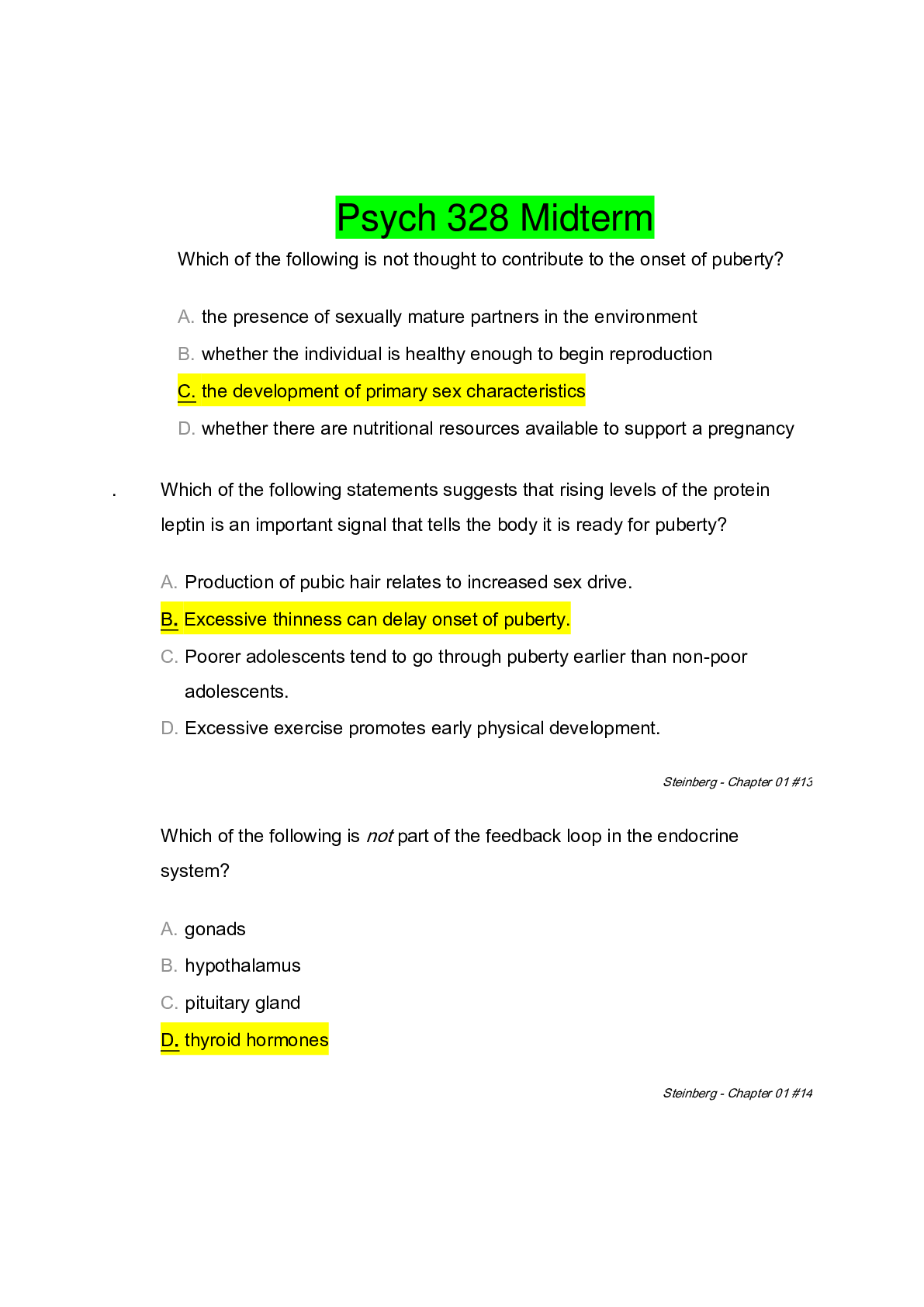
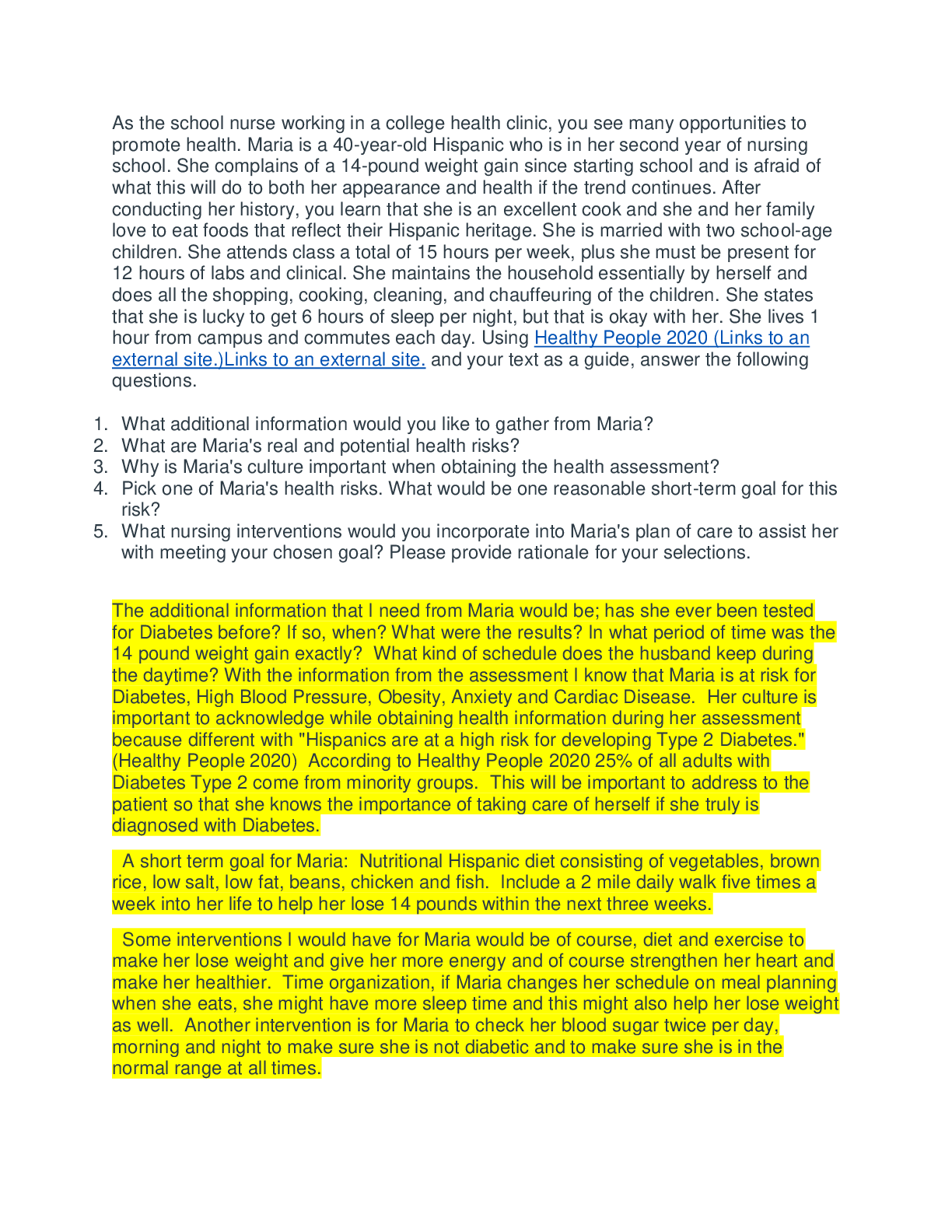
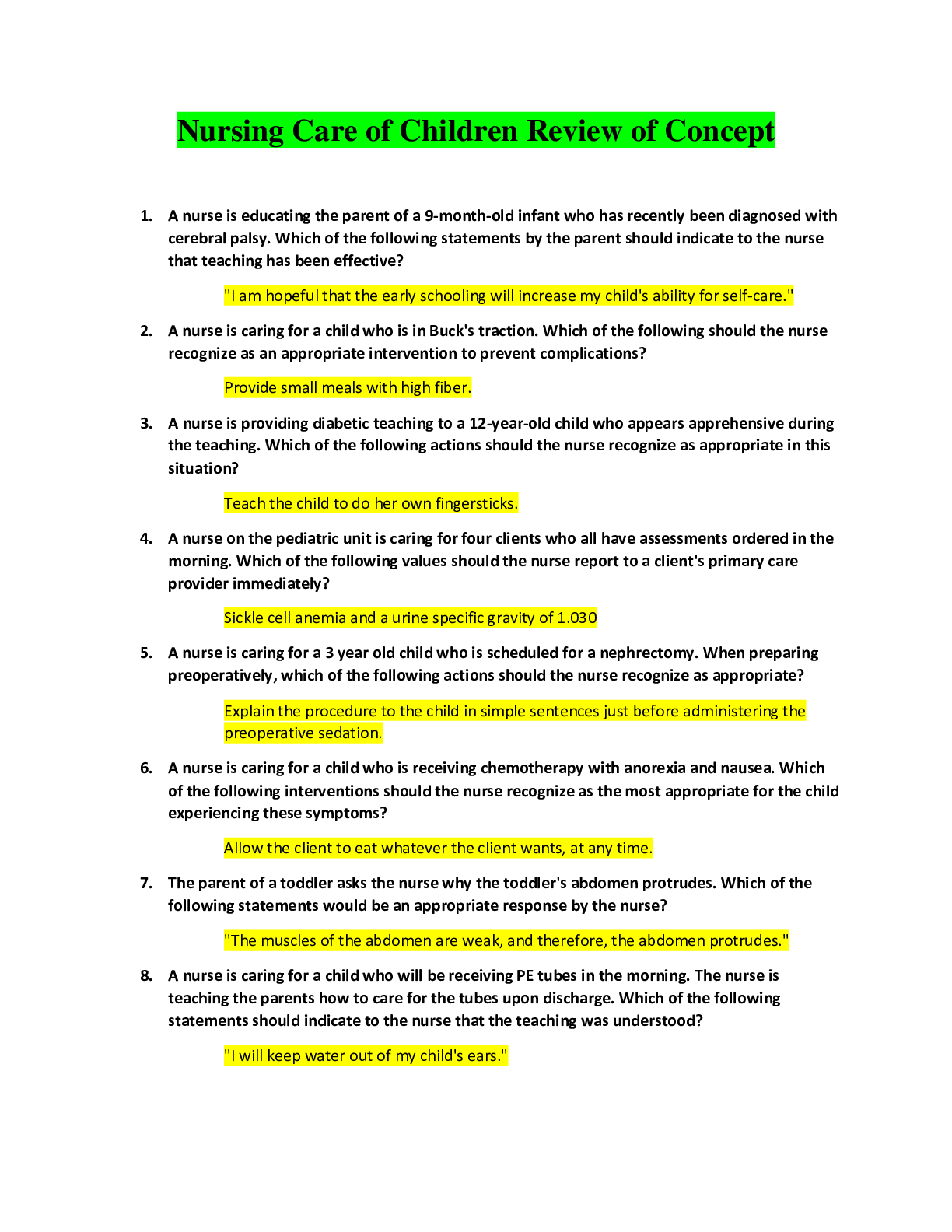
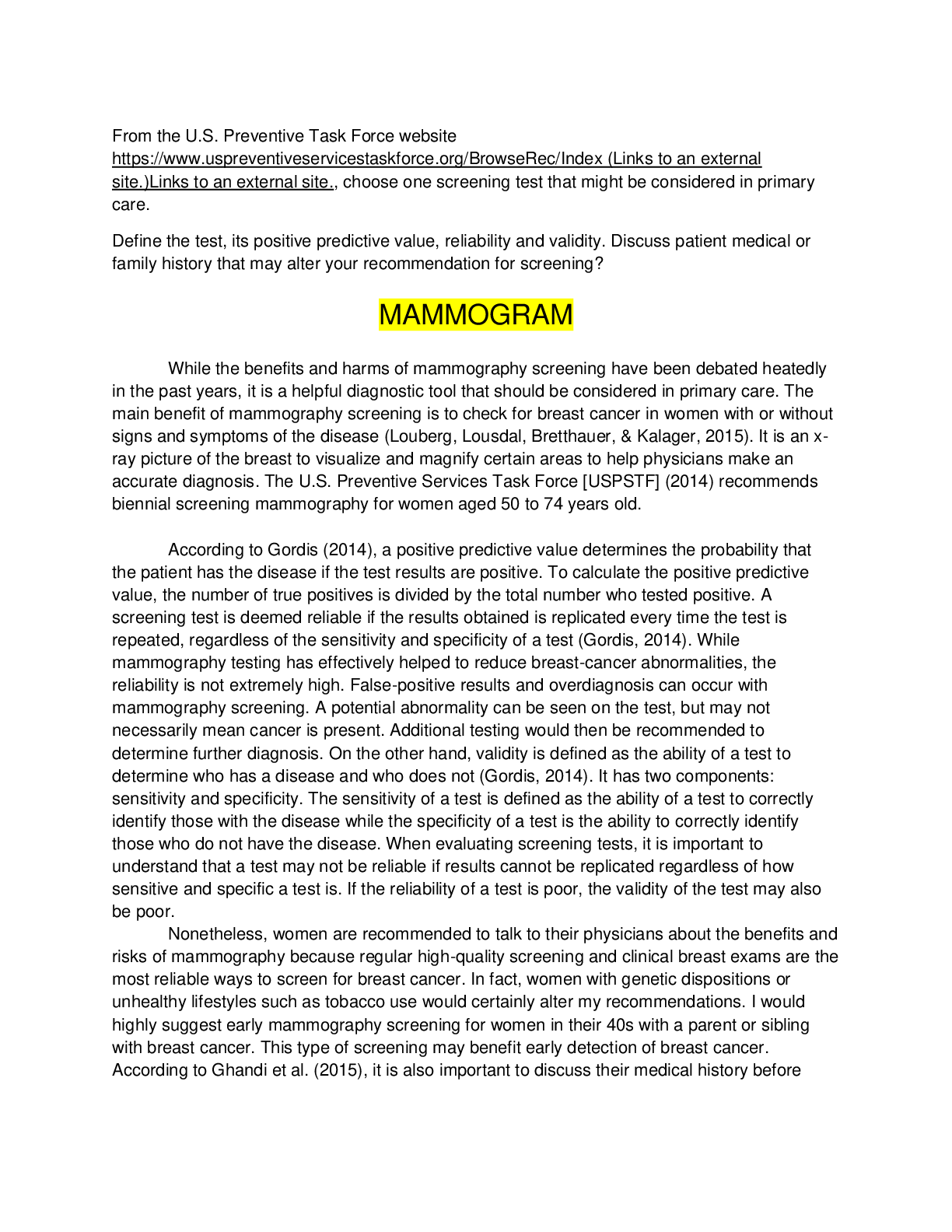
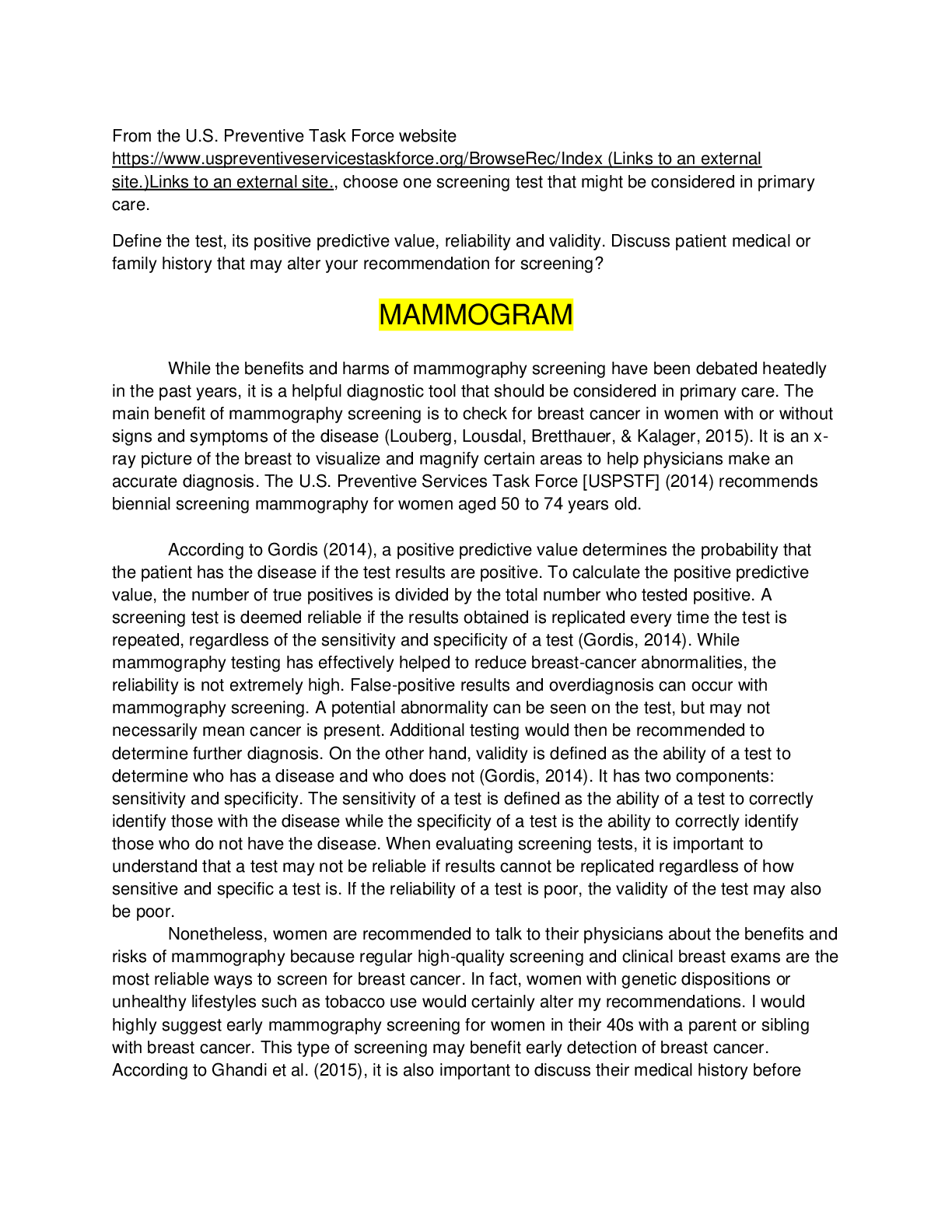
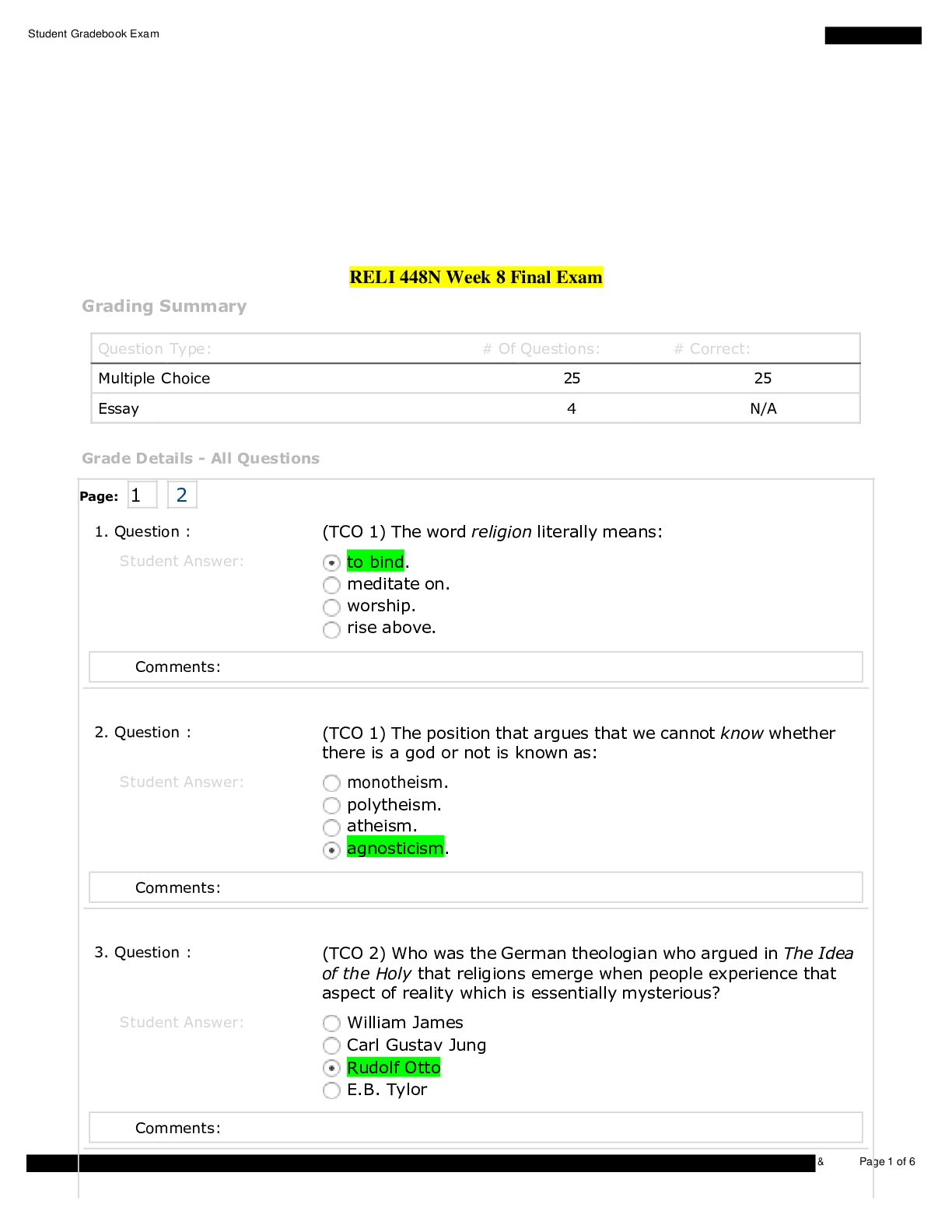
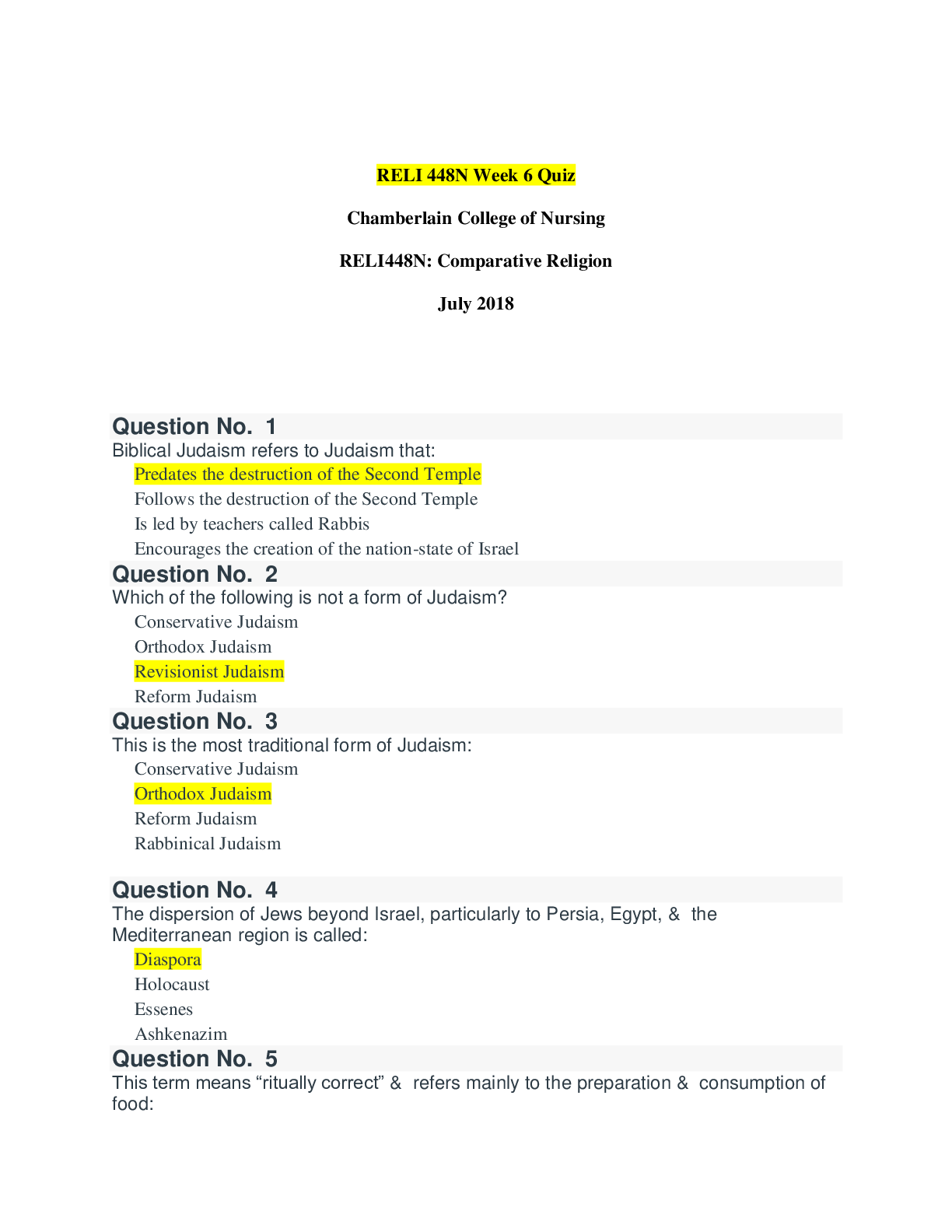
.png)
.png)
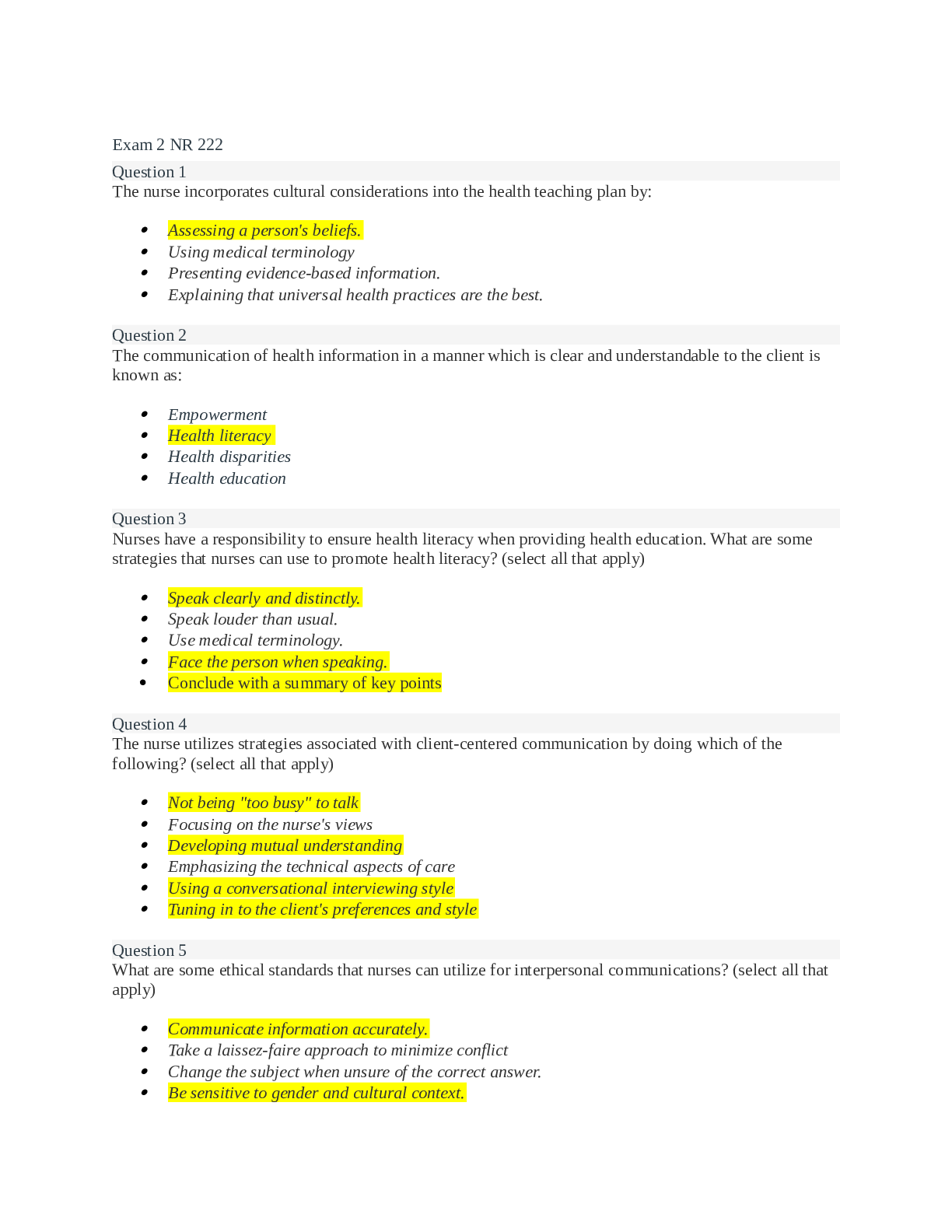
.png)



